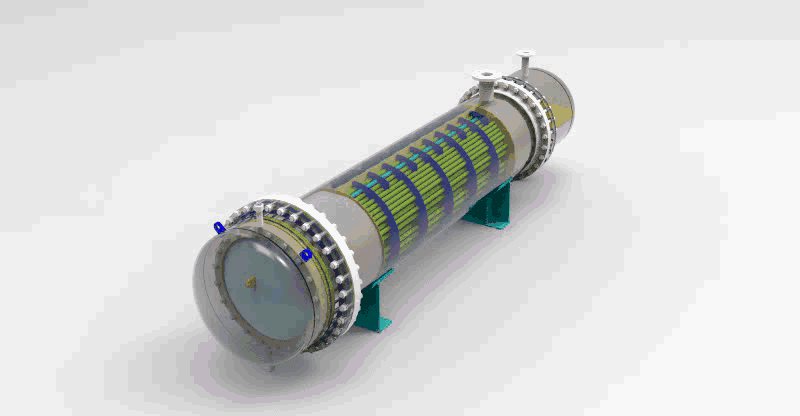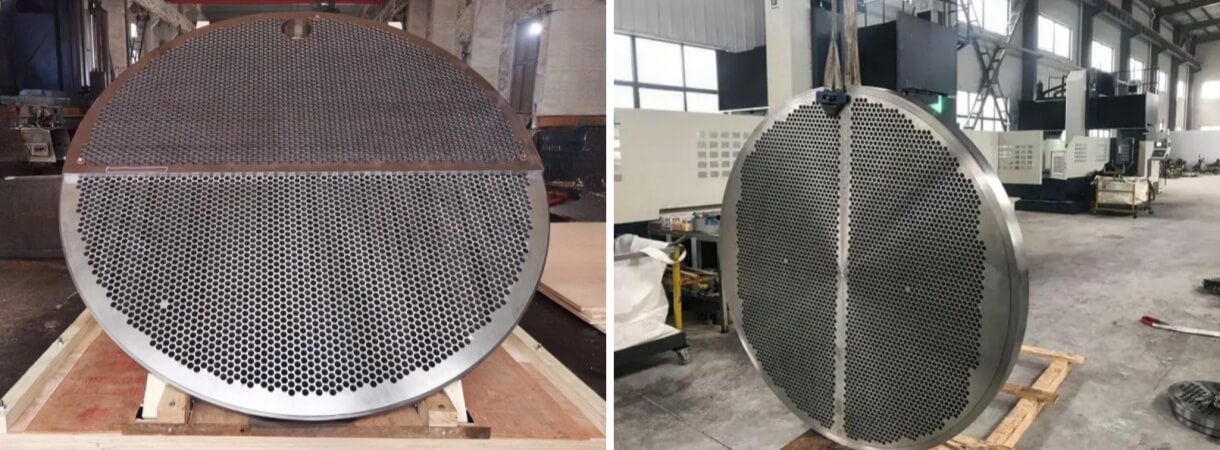
What Are You Looking For?
Tube sheets are mainly used in chemical containers, such as heat exchangers, pressure vessels, boilers, condensers, central air conditioning, evaporators, and seawater desalination, to support and fix the column pipes. The metal material not only makes them highly rigid, but also has great thermal conductivity. There are different types of tube plates, each designed for specific applications. The following are some common types of tube sheets and their specific explanations:

1.Floating tube sheet
Floating tubesheets are an important component of floating head heat exchangers. It plays a stabilizing role by being installed inside the floating head heat exchanger and supporting the structure of the tube bundle. When the tube bundle is subjected to the impact of the working medium and the pressure flowing through the tube bundle, the floating tubesheet will play a supporting role in preventing the vibration of the tube bundle, thereby ensuring the smooth flow of the medium and the safety inside the heat exchanger. During the operation of the heat exchanger, the tube bundle will expand due to heating and contract after cooling. This kind of thermal expansion and contraction will generate huge stress on the tube bundle, which is prone to cracking and deformation. The floating tube sheet can move up and down, allowing the tube bundle to freely expand and contract with temperature changes, thereby offsetting the stress generated by the tube bundle. Avoiding fatigue damage and leakage of the tube bundle can increase the fluid dynamic interaction between the tube bundle and the shell, and improve the heat transfer efficiency of the heat exchanger. Floating tube sheets are widely used in various types of heat exchangers, especially in fluids with high convective heat transfer coefficients, and their effects are more pronounced. When designing a heat exchanger, parameters such as the length, width, thickness, and floating rod length of the floating tube plate need to be selected according to specific circumstances to ensure the stability and efficiency of the heat exchanger.

2. Fixed tube sheet
Fixed tube sheet also known as tube fixing fixture. It is a device used to fix and protect pipeline systems. It can ensure the stability and safety of pipeline systems. It is usually used to fix tube plate heat exchangers, and the two end tube plates are connected and fixed to the shell by welding. The structural feature is that a tube bundle is installed in the shell, and the two ends of the tube bundle are fixed on the tube plate through welding or expansion joint. The tube plates at both ends are directly welded to the shell, and the inlet and outlet pipes on the shell side are directly welded to the shell. The flange at the outer edge of the tube plate head is fastened with bolts, and the inlet and outlet pipes on the tube side are directly welded to the head. Several baffles are set inside the tube bundle according to the length of the heat exchange tube. The tube side of the heat exchanger can be divided into any number of channels through a diaphragm.

Fixed tube sheet heat exchangers have the advantages of simple structure, low manufacturing cost, convenient cleaning, multiple tube passes, double shell passes, and wide specification range, and have been widely used in engineering. It is difficult to clean the shell side. Not suitable for dirty or corrosive media. If the expansion difference is large, we can install an expansion joint on the shell to reduce the thermal stress caused by the temperature difference on the shell side. It has the advantages of small bypass seepage, less use of forgings, low cost, no internal leakage, and a heat transfer volume 20%~30% larger than that of floating head heat exchangers.
